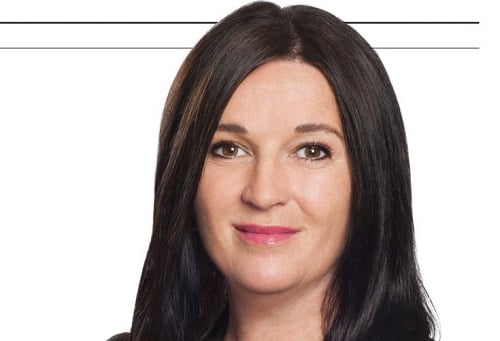First National sales manager Doreen Walsh was all set for a career in law – until her short stint in the mortgage industry became permanent

Sometimes the life we map out for ourselves is not the one that manifests before us. Doreen Walsh studied to become a paralegal, but after being hired by Sun Life Financial to do power of sales and foreclosures, things changed. As trusts began folding left, right and centre, the strategy turned to ‘work-outs.
“We were sitting down with clients and asking, ‘How can you pay? How can we work it out without selling the property?’” says Walsh, who currently serves as regional sales manager for Ontario and Atlantic Canada at First National. “When we started doing work-outs, I started underwriting to sales, and I never looked back, deciding not to pursue law. This worked out better for me, and for my career, than I could have ever imagined.”
After the death of the trust industry, Walsh worked for CIBC for a number of years, but she found it too stifling in many ways. She likens the big bank to a well oiled machine – but one that doesn’t lend itself to diversifying one’s skill set. After spending some time in commercial renewals and then underwriting at CIBC, Walsh moved on to First National.
It was there that she really spread her wings, becoming an indispensable part of the firm. She has been one of its highest-producing account managers since she started there in 2003, never missing a target during both the good times and the bad.
“I’ve always been an advocate for clients,” she says. “I’m a liaison between the broker and my company. Knowing one deal could not only affect many lives, but so many relationships and future business, I treat my brokers’ business like my own business.”
When Walsh moved into management, she was worried that she wouldn’t be able to inspire in others her own indomitable work ethic – but, not surprisingly, that hasn’t been the case.
“I was concerned people wouldn’t share my passion,” she says, “because I wanted to make sure they know how to sell like I did. These are the things that kept from wanting to manage people, but I realized that I had a lot to share. Anyone who wants to be successful will do what they have to do to become successful, and I’m no exception.”
Shifting focus One of Walsh’s crowning achievements at First National has been implementing what she calls “disrupting the rate conversation,” which became especially pertinent after the B-20 changes hit at the beginning of 2018.
“My tagline is: It’s our job to provide the answers to the questions that our clients don’t even know to ask,” she says. “Anyone can ask, ‘What’s your rate?’ but people don’t know what an interest rate differential is, or what a closed mortgage is, or that their penalty might be based on prime or prime plus 3%. These are all the things that people don’t talk about in mortgages, but they should because it’s our job.
“People can find rates on the internet,” she continues, but it’s through exploring the brass tacks that our customers will ultimately be satisfied because they won’t be blindsided by anything they haven’t been prepared for, or at least told about, and that ultimately reflects well upon our broker partners. These are the things that have helped me have success as an account manager and as a leader.”
Education is key
Guideline B-20 has proved to be the most significant roadblock the mortgage industry has had to contend with in years, but it’s given Walsh and First National a chance to truly shine. The new rules have introduced confusion around conventional and insurable pricing, and while the dust has settled, the beginning of the year resulted in bedlam throughout the industry – something that Walsh made it her business to try to mitigate.
“We had to get a clear vision out about what we were doing, and then, by extension, we had to communicate that to the world,” she says.
“The brokers had to be clear to their clients because it’s a domino effect, and often, things were getting lost in translation. It took a long time, but we’ve absorbed the changes really well. About 14 of my account managers understood this and explained it to 3,000 of their brokers.”
Part of the message Walsh crafted and conveyed to First National’s broker partners is that despite B-20, it’s business as usual.
“We did not lose money, and we’re still not going to lose money,” she says. “We had to explain why things were priced differently; however, the saving grace is that we had better rates than banks did sometimes, while other times, admittedly, their rates were better than ours. First National has not lost a lot of business through these changes, and the key piece has been educating clients. We provided brokers with the scripting so that they could relay our message to their clients.”
Walsh is a proponent of educating clients beyond just B-20. When it comes to disrupting the rate conversation, she believes it’s imperative to understand where clients are in their life cycle and for that to dictate proceedings.
Clients don’t understand the ‘70% rule,’” she says. “Seventy percent don’t make it to fruition, so they’re going to pay a penalty. What that penalty look like?”
This is just one reason she believes brokering has changed. “Brokering the way we did five years ago is a short-lived plan,” she says.



